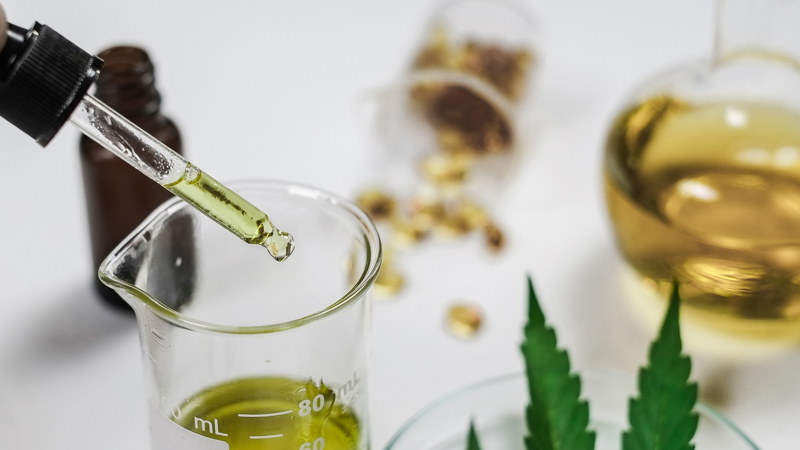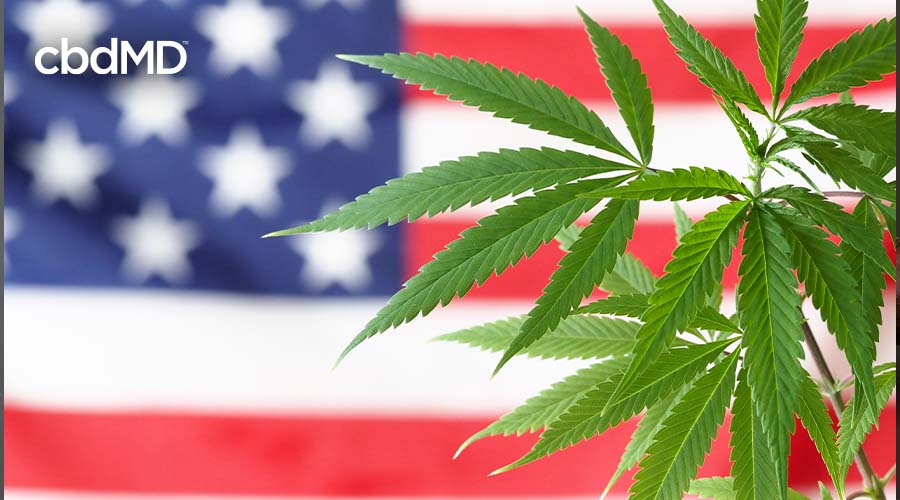
FDA and FTC have issued numerous warning letters concerning the industry's marketing strategies in regards to cbd product. These letters were directed at products with unapproved claims made on company websites. They also highlighted certain products as unapproved new drugs and introduced without FDA approval. Curaleaf and Advanced Spine and Pain, LLC, were among the two companies that received these letters.
FD&C Act
The FD&C Act governs marketing of food products. It was created to stop the interstate sale of adulterated or misbranded food. Congress passed the Federal Food, Drug, and Cosmetic Act, authorizing the FDA's regulation of medical products. The act prohibited the misbranding or misrepresentation of cosmetics and therapeutic devices. Other important laws were also passed in the twenty-first century, including the Public Health Service Act (also known as the Radiation Control for Health Safety Act).
Consumers are protected by the FD&C Act which requires that manufacturers disclose adverse events. FDA can recall any device manufactured by a company not in compliance with these regulations. In such cases, the FDA may issue civil penalties to the company. It may also be required to take the product off market.

Cannabidiol's pharmacological activity
Cannabidiol can be used in a variety of clinical situations. It is an important component to cannabis. Its pharmacological activities have been studied in both animals and humans. It is an effective treatment for pain and inflammation, as well as anti-inflammatory, analgesic and anti-inflammatory properties.
Cannabinoids can reduce the behavioural reactions to noxious stimuli in animal and human models. Cannabinoids are able to block the CB2-like receptors that cause this effect. These receptors are found in the spinal cord and ventro-posterolateral nucleus of the thalamus.
Animal safety risk
Despite the positive results for human health, the FDA is still concerned about the safety of CBD products in food-producing animals. Despite not having tested CBD products on animals, the FDA has repeatedly issued warning letters for companies that sell CBD products. Additionally, the FDA hasn't yet evaluated CBD products for safety, including their dosage and interactions with FDA-approved drugs.
FDA safety concerns with CBD in food-producing animals stem from a lack of safety data and efficacy. The FDA has expressed concern that reliance on unproven CBD claims may result in animal owners postponing treatment for their animals. CBD food for animals has not been tested by FDA, so it could contain pesticides and other heavy metals.

Regulation framework for products that contain cbd
The FDA must develop a clear regulatory framework in order to make decisions about the safety and quality CBD products. This framework should contain an update on the current scientific data, and a roadmap to fill in any gaps. It should require CBD products to be reported to FDA for review. This framework should also provide opportunities for all stakeholders for sharing knowledge.
CBD products can be regulated by both the federal and state governments in different ways. CBD products are not yet FDA cleared in many states. Therefore, they are subject to strict regulatory enforcement. There are also ongoing litigations concerning the legality of CBD-derived products. These laws should be strictly followed by businesses to avoid any potential lawsuits.
FAQ
How much CBD do you need?
The type of product you are buying will determine how much dosing is required.
CBD oils can be purchased in strengths of 100mg up to 1,000mg per bottle.
Some CBD products come in specific doses such as 25mg 50mg and 75mg.
Charlotte's Web is an example of a company that makes CBD products with exact amounts of CBD and other cannabinoids.
If you're unsure whether or not CBD will work for you, start with a low dose.
You can always go up later.
Is CBD a good business to invest in?
The market for hemp-based products continues to grow as people become increasingly aware of their benefits. According to some estimates, there will be 1 billion dollars worth of hemp-based products in stores by 2022.
Market growth is expected at an annual rate in excess of 20% up to 2020, when it will reach $2.5Billion.
Hemp oil can be found in many beauty and health products, including lotions, shampoos and lip balms, moisturizers and body butters.
Many companies also make CBD-infused snacks, pet food, treats, and other food products.
CBD is currently legally available in all 50 States. However, this could change soon. CBD is legal in all 50 states, but more research will be conducted to determine its potential uses. Businesses will have an easier time operating legally.
These are just a few of the many reasons CBD investment can be lucrative.
How big does the global CBD market look?
Euromonitor International estimated that the global CBD industry was worth $US3.5 billion in 2015. This represents a 10% increase from 2014.
This figure is expected to grow at an average rate of 12% by 2020.
CBD products will make up around half of all products derived from hemp by 2020.
This includes both CBD oils and other CBD products such as food, beverages, cosmetics, and pet care items.
What is the future in CBD?
The future is bright for the CBD industry. It's easy for people to get on board with this sector. It's easy to see why this market is growing exponentially, with CBD products generating over $1 billion in global sales.
According to Statista, worldwide sales of cannabidiol (CBD), are expected to hit $22.4 billion in 2019. That's almost 200% more than in 2018!
Also, the CBD market is expected to grow at a compound annual rate of 22.5%. This would translate to almost $6.8 billion in revenues by 2022.
This is good news for both companies that want to enter the CBD market and those who are already in this sector. However, the CBD market is still in its infancy. This means that there will be challenges.
Can I use CBD during pregnancy?
There isn't enough research to know if CBD is safe to use during pregnancy.
But based on the limited amount of information available, it appears unlikely that CBD would cause harm to the baby.
Pregnant women shouldn't take CBD unless they are advised by their doctor.
A recent warning was issued by the Food and Drug Administration about possible risks from CBD consumption during pregnancy.
FDA claims that "there are some evidences that cannabis consumption during pregnancy may increase the likelihood of miscarriage."
The agency added that more research is needed before a firm conclusion can be drawn.
Statistics
- A recent study [161] also found that in vitro CBD treatment (i.e., ≤ 2 h exposure to 10 μM) induced ~40% vasorelaxation in isolated (pre-constricted) (ncbi.nlm.nih.gov)
- HR −16 mmHg; 95% CI −26, −6; I2 = 92%) (ncbi.nlm.nih.gov)
- As a substance that was federally illegal before the passage of the 2018 Farm Bill, hemp-derived cannabinoids with no more than 0.3% THC still face a regulatory grey area. (forbes.com)
- OralWhere HED is the human equivalent dose, and Km is a correction factor estimated by dividing the average body mass (BM) of the species (60, 0.020, and 0.150 kg for 11 humans, mice, and rats, respectively) and by its surface area (see: Nair et al. (ncbi.nlm.nih.gov)
- While the primary injury may not be treatable, interventions that attenuate secondary sequelae are likely to be of benefit [203].Only one study (ncbi.nlm.nih.gov)
External Links
How To
What are the common issues in the CBD industry?
The market for CBD products is expanding at an astounding rate. However, there are still many challenges facing businesses looking to enter this space. There are many challenges facing businesses looking to enter this space, including low consumer awareness, high costs of entry and limited access to capital.
Many consumers do not know what CBD is or how it works. This means that they cannot make informed decisions about whether or not to buy CBD products.
As a result, most CBD companies rely heavily on word-of-mouth marketing. This is expensive because it requires paying for advertising and hiring staff to promote their brand.
Another problem for new entrants to CBD is the high price of production. It is very expensive to obtain the raw materials required for CBD products. CBD oil can only be made if hemp is grown in the right climate and soil conditions.
For CBD oil to be produced, you need to plant enough hemp. This costs about $1,000 an acre. Many small farmers can't afford to begin.
A lack of capital access is another issue that new entrants will face in the CBD marketplace. Banks discourage many people from starting a business because of the stigma attached to this industry.
Last but not least, there is regulatory uncertainty regarding the sale and distribution of CBD products. There are currently no clear guidelines regarding how CBD products should be marketed.
Although some states have passed legislation restricting CBD product sales, this has not become a national policy.
Only Nevada and Maine have already legalized recreational cannabis.
Massachusetts and Michigan, however, are exploring similar options.
These changes could mean that CBD manufacturers will be more competitive.
As a result of these factors, many entrepreneurs choose to work from home rather than start a physical business.